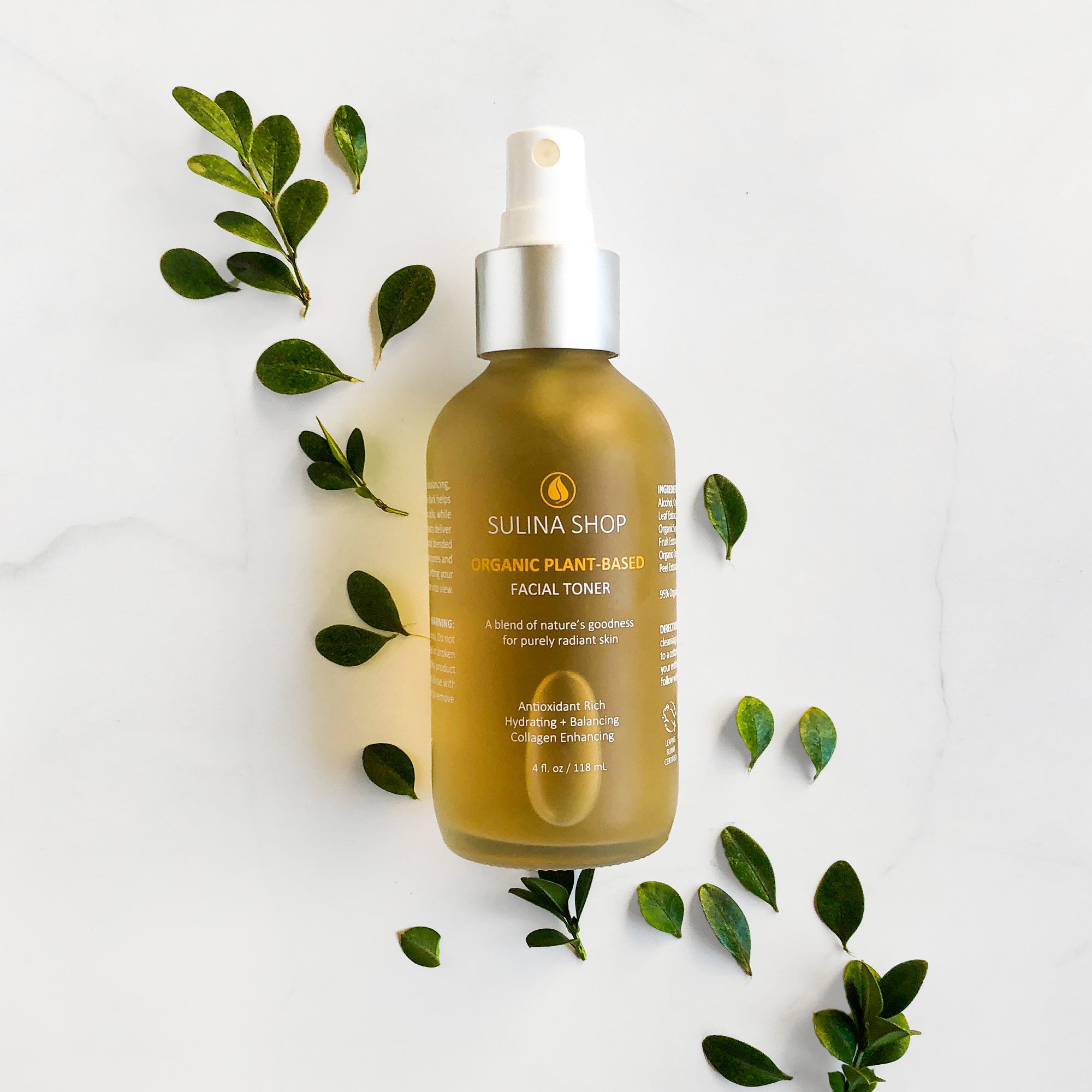
Are Facial Toners Needed?
Facial toners are only needed if they add value to your skin. Toners can have several purposes, including hydration, preparing your skin for your moisturizer, or removing dead skin cells.
In the past, facial toners were used mainly to balance skin’s pH levels after cleansing, since cleansers would typically strip natural oils and leave skin feeling deprived and over-dry. However, many cleansers available today are gentle enough to not strip skin of healthy oils.
So, are facial toners absolutely needed as a part of a beauty routine? It depends!
Why Use a Facial Toner?
Facial toners are made with ingredients that can help improve your overall skin’s health.
Toners can give your skin added hydration.
Hydration is key for every skin type — whether you have oily, dry, normal or combination skin. “Hydration” refers to the skin’s water base, and not oil. Ingredients in facial toner like hyaluronic acid add water to your skin (as opposed to facial oils that lock in moisture that should already be on your skin).
Therefore, facial toners can give you added hydration with ingredients like aloe vera, hyaluronic acid, or glycerin. Often, you can find these ingredients in facial serums and moisturizers, too. But since a facial toner is mostly water-based, it’s absorbed quickly and helps prepare your skin to better accept your moisturizer.
Moisturizers work well if your skin is damp, allowing the ingredients to saturate pores and start repairing while you’re sleeping. So, a facial toner can be used to prep skin so that a moisturizer can work its magic.
It can help balance skin’s pH Level.
Skin is at its healthiest somewhere between 4-6 on the pH scale. Since most of us don’t have a pH tester, we instead rely on look and feel to determine if our skin is oily, dry, normal, or combination.
If your skin feels too tight or dry after cleansing, it’s a sign that your cleaner may be stripping your natural oils and affecting your pH. A facial toner can help balance oil production and give skin added hydration after cleansing, leaving your skin feeling healthy instead of dehydrated.
Toners can remove dead skin cells.
Some toners have Glycolic Acid or Salicylic Acid — both of which can gently remove dead skin cells and lead to softer, smoother skin. These ingredients are non-abrasive, meaning that they gradually remove dead skin cells to unclog pores. There are other methods of exfoliation, too, such as products with tiny grains, washcloths, or chemical exfoliants that gradually peel away dead skin cells. Facial toners are one gentle method of doing this while replenishing skin at the same time.
They can help even skin tone.
Some facial toners have Alpha Arbutins that can help to fade scars or reduce hyperpigmentation. Alpha Arbutin can come from bearberries, blueberries, cranberries, or glycolic acid (which comes from sugarcane) and have been known to reduce the appearance of dark spots. These ingredients can be found in some toners, serums, and moisturizers.
Lastly, some people use facial toners for added cleansing. There are many conflicting opinions about whether or not toners should be used to remove residual dirt and oil. If you wear a lot of makeup or have a job where you’re exposed to dirt or grime, for example, you may want to use an oil-based cleanser to break down the build-up on your skin, and then use a toner to remove additional debris and skin cells. However, for the most part, facial toner should be used to add value to your skincare routine instead of removing or cleansing.
Overall, a healthy facial toner should refresh, hydrate, and improve skin without stripping away natural moisture. If a toner irritates your skin, leaves it feeling dry, or causes redness, then get rid of it. Always do a patch test before applying a product to your entire face, and continue to ask yourself if your toner is improving the health of your skin.